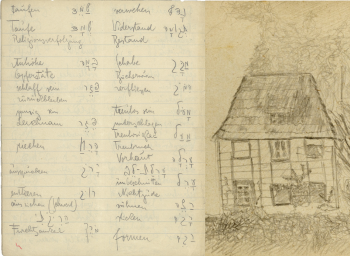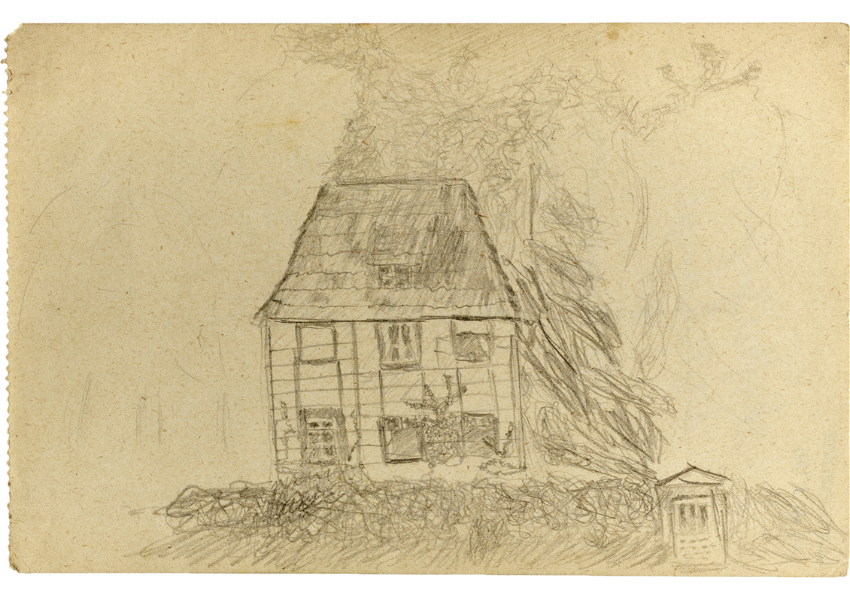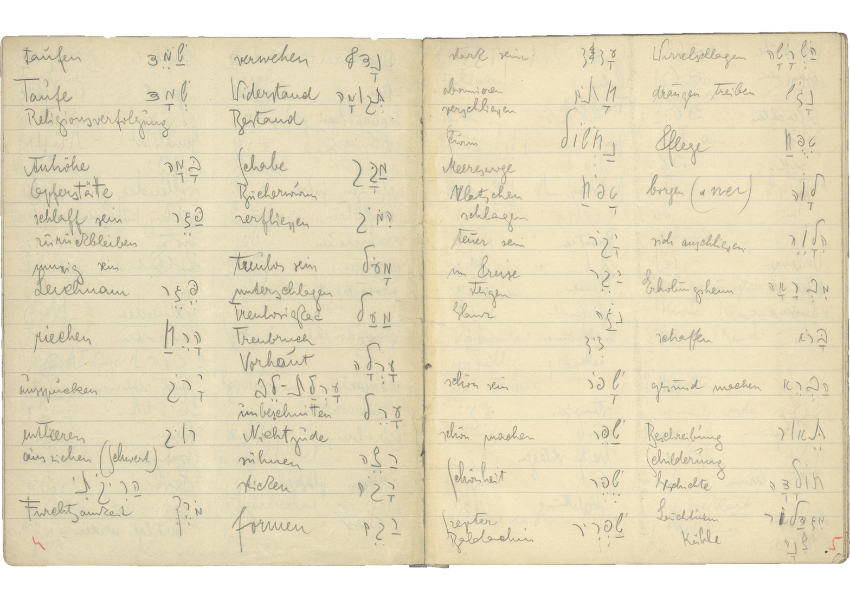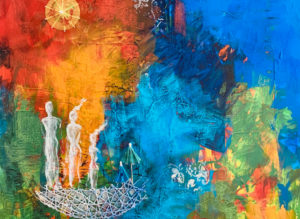Crossroads & Connections: Kafka’s Life and Legacy
By The National Library of Israel
Published Apr 26, 2023

Franz Kafka's Hebrew Studies and Drawings, Czechoslovakia and Germany, 20th century

>>> Expand this image. <<<
Franz Kafka (1883–1924) was born to an assimilated Jewish family in Prague. In 1921–22, before his early death from tuberculosis, Kafka wrote two notes to his dear friend, Max Brod, asking that all his manuscripts, paintings, and letters be destroyed after his death. In defiance of this clear directive, Brod collected Kafka’s works, examined them, and began to publish them. Brod took all of Kafka’s writings with him when he fled his native Czechoslovakia for Palestine in March 1939.
In the early 1960s, Brod returned a large number of the writings to Kafka’s surviving heirs. However, he retained hundreds of letters, several short manuscripts, some Hebrew exercises, and many drawings, which compose a significant part of Kafka’s literary legacy. After editing them, Brod deposited these precious items in a Swiss bank for safekeeping. Following a prolonged legal battle over rightful ownership that ended only in 2019, Brod’s extensive personal archive, which included Kafka’s works, was deposited in the National Library of Israel. These works represent the third-largest collection in the world of original materials by Franz Kafka.
Above: Kafka’s pencil drawing of Johann Wolfgang Goethe’s garden cottage in Weimar, Germany, 1912, folio 12r.
Below: Kafka’s Hebrew exercises during his studies, folios 14v–15r, in Franz Kafka, Blue Notebook, Prague, Czechoslovakia, c. 1920. ARC. 4° 2000 5 34. Max Brod Archive. ARC. 4° 2000 5 85. The Max Brod and Franz Kafka Archive.
Photography by Ardon Bar-Hama.
Franz Kafka's Hebrew Studies and Drawings, Czechoslovakia and Germany, 20th century

Founded in Jerusalem in 1892, the National Library of Israel (NLI) serves as Israel's preeminent research library
Reflections
Click here to visit the exhibition resource page to learn more and to browse accompanying lesson plans, webinars, and videos, about the treasures in this exhibition.
Want more?
Get curated JewishArts.org content in your inbox


